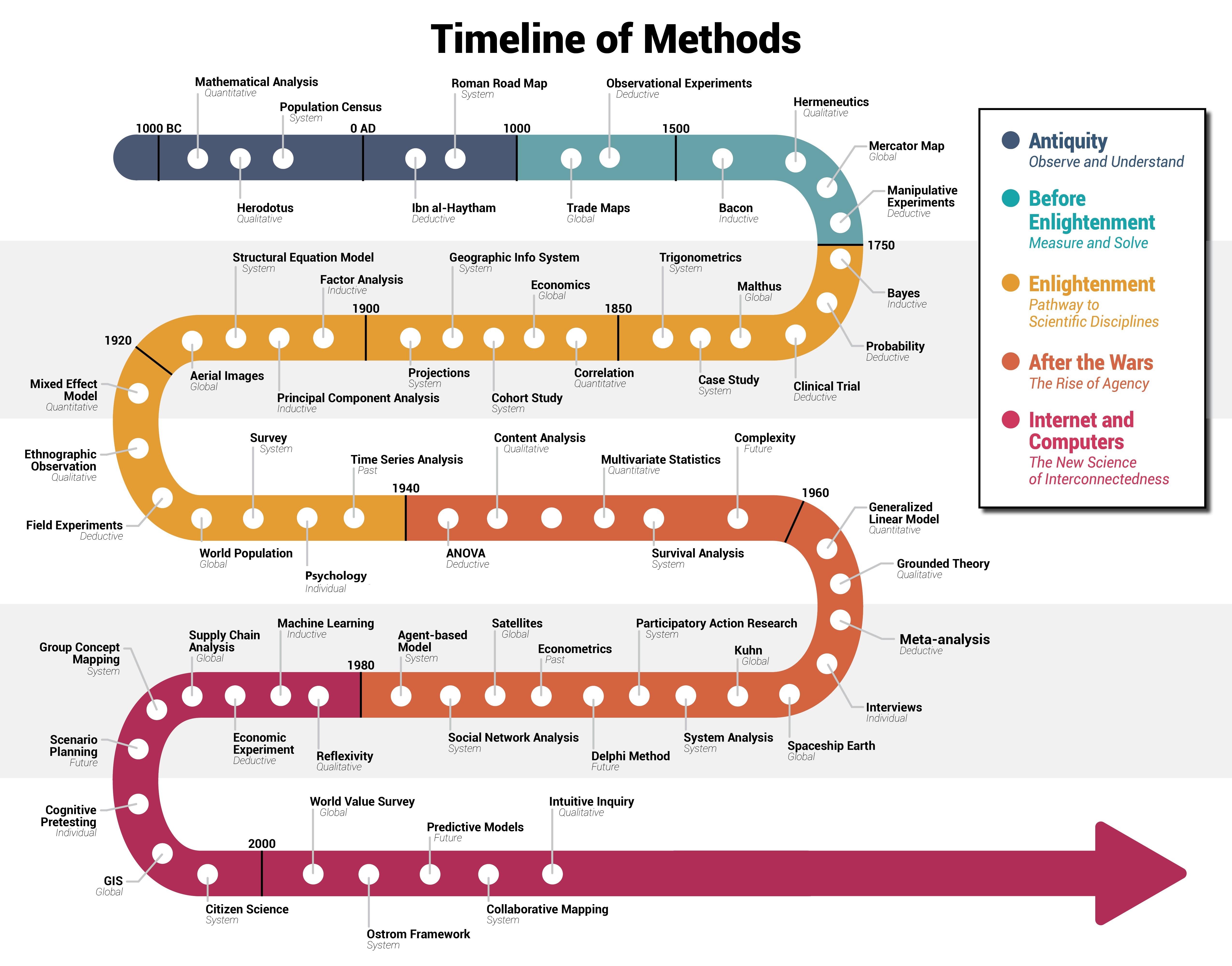Difference between revisions of "History of Methods"
| Line 31: | Line 31: | ||
The age of reason triggered - among many other changes - the development of scientific disciplines much further as ever before. Scientific inquiry was enabled by an increasing influx of resources from the colonies, and biology, medicine, mathematics, astronomy, physics and so much more prospered. '''Early inquiries into these disciplines had often existed since centuries if not millennia, but now knowledge got explored at an exponential pace.''' Much of it was descriptive at first, including what would be considered natural history today. Yet, the early inquiries into the systematical determination and differentiation of organisms ([https://www.britannica.com/biography/Carolus-Linnaeus Linné]) laid the foundation of many other concepts. It was again the colonies that triggered a surplus, this time in basic material to generate more insight. Darwins theory, after all, would have been impossible without specimen from his journeys. While some thus looked into the natural world, other branches of science investigated society, and the first truly systematic case studies were designed in medicine. Hence we moved from experiments as a means of observation into [[Experiments|experimental inquiry]], paving the road to 20th century hypothesis testing. This demanded the testing of the observational outcome, a phenomenon that equally challenged scientists in astronomy. There, just as in experiments, it was recognized that although they tried to be diligent and use the latest available optical tools, there could still be an error that needed to estimated. This constituted a true application opportunity for statistics, leading to the rise of [[Category:Quantitative|quantitative]] methods. | The age of reason triggered - among many other changes - the development of scientific disciplines much further as ever before. Scientific inquiry was enabled by an increasing influx of resources from the colonies, and biology, medicine, mathematics, astronomy, physics and so much more prospered. '''Early inquiries into these disciplines had often existed since centuries if not millennia, but now knowledge got explored at an exponential pace.''' Much of it was descriptive at first, including what would be considered natural history today. Yet, the early inquiries into the systematical determination and differentiation of organisms ([https://www.britannica.com/biography/Carolus-Linnaeus Linné]) laid the foundation of many other concepts. It was again the colonies that triggered a surplus, this time in basic material to generate more insight. Darwins theory, after all, would have been impossible without specimen from his journeys. While some thus looked into the natural world, other branches of science investigated society, and the first truly systematic case studies were designed in medicine. Hence we moved from experiments as a means of observation into [[Experiments|experimental inquiry]], paving the road to 20th century hypothesis testing. This demanded the testing of the observational outcome, a phenomenon that equally challenged scientists in astronomy. There, just as in experiments, it was recognized that although they tried to be diligent and use the latest available optical tools, there could still be an error that needed to estimated. This constituted a true application opportunity for statistics, leading to the rise of [[Category:Quantitative|quantitative]] methods. | ||
| − | [[File:860-header-explainer-correlationchart.jpg|500px|left|thumb|'''Correlations can be deceitful.''' Source: [http://www.tylervigen.com/spurious-correlations Spurious correlations]]] Probability was the core underlying principle, or in other words, the statistical answer to the question whether something was truly by chance, or if there was a statistical relation. Under the growing economies, more and more numbers surfaced, and building on the Dutch resolution of double book keeping, questions arose whether there were patterns to be found in the data. Could crop outcome of cotton predict its market value later in the year? And would crop failures be clearly linked to famines, or could this be compensated? '''Statistical [[Correlations|correlations]] were able to relate to variables, and to find if one is related to the other, or | + | [[File:860-header-explainer-correlationchart.jpg|500px|left|thumb|'''Correlations can be deceitful.''' Source: [http://www.tylervigen.com/spurious-correlations Spurious correlations]]] Probability was the core underlying principle, or in other words, the statistical answer to the question whether something was truly by chance, or if there was a statistical relation. Under the growing economies, more and more numbers surfaced, and building on the Dutch resolution of double book keeping, questions arose whether there were patterns to be found in the data. Could crop outcome of cotton predict its market value later in the year? And would crop failures be clearly linked to famines, or could this be compensated? '''Statistical [[Correlations|correlations]] were able to relate to variables, and to find if one is related to the other, or if the two are unrelated.''' This triggered a hefty move of utilitarianism from philosophy into economics, which is one of the core disciplines up until today. Much can be said about the calculation of utility, [[Big problems for later|but I will surely do this not here]]. In science, learned academies grew everywhere, and universities thrived, also because of the economic paradigm of a growth-focused and consumption-orientated baseline that emerged, and more and more knowledge emerges to criticize and question this paradigm. This triggered what is often called the age of reflection, when empiricism became basically untamed, and the depth of inquiry led to disciplines that started to entrench themselves into even deeper sub-disciplines. The impact on societies was severe. Mechanization, new approaches in agriculture, the rise of modern medicine, an increasingly refined biology and the developments in chemistry are testimony of the physical world being ever more in the focus of science. The general lines of philosophical thinking - reason, social contract and utilitarianism - became partly uncoupled from philosophy, and developed for better or worse to become distinct disciplines such as psychology, social science, political science, cultural studies and economics. We thus observe a deviance from empirical sciences from the previously all-encompassing philosophy. Hence empiricism was on the rise, and with it a pronounced shift in science and society. |
==== After the Wars - ''The Rise Of [[Agency, Complexity and Emergence|Agency]]'' ==== | ==== After the Wars - ''The Rise Of [[Agency, Complexity and Emergence|Agency]]'' ==== | ||
Revision as of 06:32, 25 February 2021
Note: The German version of this entry can be found here: History of Methods (German)
This entry provides an overview on the history of scientific methodology through the ages. Where did science come from, and which influences and changes occurred until now? Learn more about key figures, methods and developments with this brief introduction.
Contents
Antiquity - Observe And Understand
With the rise of language, and much later with the invention of writing, we witnessed the dawn of human civilisation. Communicating experience and knowledge is considered to be one of the most pivotal steps that led to the formation of societies. Once we moved from being hunters and gatherers into larger and more complex cultures that lived in cities, a surplus in food production allowed for some privileged people to preoccupy themselves with other goals than the mere safeguarding of their daily survival. This led to the blossoming of early cultures across the globe, many of which with tremendous developments in terms of agriculture, engineering and architecture. The rise of urban cultures East and West led to a new line of inquiry and ultimately also a new line of thinking, most notably in civilizations such as the Vedic, the Zhou period, early Persian culture, and - often most recognised in the West - Ancient Greece.
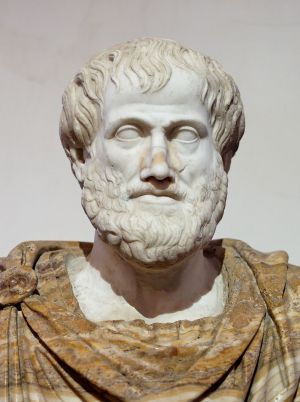
Greece is often in the focus because we consider it the birthplace of modern democracy, despite only a small privileged elite actually being considered citizens. Though these privileged were only few, we owe Aristotle, Socrates and Plato and many others the foundation of Western Philosophy. Empirical inquiry did not weigh down thinking yet, hence much of the thinking of Greek philosophy was lofty but free from the burden of real world inquiry. There were connections between philosophical thinking and the real world - you might remember Pythagoras from school - yet much later philosophy and the rest of science would be vastly disconnected. Early accounts such as the scriputures of Herodot give testimony of the history of this age, and represent one of the earliest accounts of a systematic description of geography and culture. Early mathematics paved the way for more fundamental approaches, and surveys were a common part of the governance at the time. Hence many approaches that we would consider scientific methods were already being utilised, but not so much for scientific inquiry as for a direct purpose of benefit that was not necessarily associated with scientific knowledge production.
Eastern cultures often had a comparably early development of philosophies, with Confucius' work as well as the Vedas and the Pali canon as testimony of the continuous cultural influence that is comparable to Greek philosophy in the West. Equally did many Eastern empires use methods such as census and survey as measures of governance, and many other notable approaches that would later contribute to the formation of scientific methods. Law was an early testimony of the necessity of rules and norms in human societies. Consequently, Legal Research can be seen as one of the earliest forms of inquiry that translated systematic inquiry and analysis directly to the real world.
Between the ancients and the medieval times there a somewhat blurry gap, with the fall of the Roman Empire in the West, the expansion of the Mongol empire in the East, and the occupation of much of India by Islam as notable elements of change. All this triggered not only an enormous cultural change, but more importantly an increasing exchange, leading to schools of thoughts that became increasingly connected through writing, and also often in thinking. Logic is an example of a branch of philosophy that linked the ancients (Plato, Confucius, the Buddha) with the philosophy of the enlightenment. This was an important precondition in medieval times for a systematic line of thinking, triggering or further developing pragmatic, analytic and sceptic approaches, among others. Logic as a part of philosophy provided the basis for a clear set of terms and rhetoric within inquiry, and would later become even more important with regards to rationality. The early need for a clear wording was thus deeply rooted in philosophy, highlighting the importance of this domain until today.
Many concrete steps brought us closer to the concrete application of scientific methods, among them - notably - the approach of controlled testing by the Arabian mathematician and astronomer Alhazen (a.k.a. Ibn al-Haytham. Emerging from the mathematics of antiquity and combining this with the generally rising investigation of physics, Alhazen was the first to manipulate experimental conditions in a systematic sense, thereby paving the way towards the scientific method, which would emerge centuries later. Alhazen is also relevant because he could be considered a polymath, highlighting the rise of more knowledge that actually enabled such characters, but still being too far away from the true formation of the diverse canon of scientific disciplines, which would probably have welcomed him as an expert on one matter or the other. Of course Alhazen stands here only as one of many that formed the rise of science on the Islamic world during medieval times, which can be seen as a cradle of Western science, and also as a continuity from the antics, when in Europe much of the immediate Greek and Roman heritage was lost.
Before Enlightenment - Measure And Solve
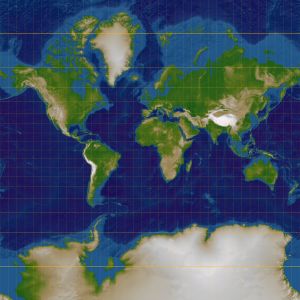
Another breakthrough that was also rooted in geometry was the compilation of early trade maps. While many European maps were detailed but surely not on scale (Ebstorfer Weltkarte), early maps still enabled a supra-regional trade. The real breakthrough was the Mercator map, which was - restricted to the knowledge at the time - the first map that enabled a clear navigation across the oceans, enabling colonialism and Western dominions and domination of the world. This is insofar highly relevant for methods, because it can be argued that the surplus from the colonies and distant countries was one of the main drivers of the thriving of the European colonial rulers, their economies and consequently, their science. A direct link can be made between the inequalities that were increased by colonialism and the thriving of Western science, including the development of scientific methods.

With a rising number of texts being available through the invention of printing, the long known method of Hermeneutics, which enabled deep and systematic analysis of writing, was one of the first methods to grow. A link can be made to translations and interpretations of the Bible, and many other religious discourses are indeed not different from deep text analysis and the derivation of interpretations. Hermeneutics go clearly a step further, and hence are one of the earliest and to date still most important scientific methods. Thought Experiments were another line of thinking that started to emerge more rapidly. By focussing on What if questions, scientists considered all sorts of questions to derive patterns of even law of nature (Galileo) and also directed their view into the future. Thought experiments were in an informal way known since antiquity, yet during medieval times these assumptions became a trigger to question much of what was supposedly known. Through experiments they became early staring points for subsequent more systematic experimentation.

It was Francis Bacon who ultimately moved out of this dominance of thinking and called for the importance of empirical inquiry. By observing nature and its phenomena, we are able to derive conclusion based on the particular. Bacon is thus often coined to be the father of 'the scientific method', an altogether misleading term, as there are many scientific methods. However, empiricism, meaning the empirical investigation of phenomena and the derivation of results or even rules triggered a scientific revolution, and also a specialization of different scientific branches. While Leonardo da Vinci (1452-1519) had been a polymath less than a century ago, Bacon (1561-1626) triggered an increase in empirical inquiry that led to the deeper formation of scientific disciplines. Many others contributed to this development: Locke claimed that human knowledge builds on experience, and Hume propelled this into skepticism, casting the spell of doubt on anything that is rooted in belief or dogma. By questioning long standing knowledge, science kicked in - among other things - the door of god himself, a circumstance that is too large to be presented here in any sense. What is important however is that - starting from the previous age of diverse approaches to knowledge - the combination of empiricism on the one end, and the associated philosophical developments on the other end, the age of reason had dawned.
Enlightenment - Pathways To Scientific Disciplines
The age of reason triggered - among many other changes - the development of scientific disciplines much further as ever before. Scientific inquiry was enabled by an increasing influx of resources from the colonies, and biology, medicine, mathematics, astronomy, physics and so much more prospered. Early inquiries into these disciplines had often existed since centuries if not millennia, but now knowledge got explored at an exponential pace. Much of it was descriptive at first, including what would be considered natural history today. Yet, the early inquiries into the systematical determination and differentiation of organisms (Linné) laid the foundation of many other concepts. It was again the colonies that triggered a surplus, this time in basic material to generate more insight. Darwins theory, after all, would have been impossible without specimen from his journeys. While some thus looked into the natural world, other branches of science investigated society, and the first truly systematic case studies were designed in medicine. Hence we moved from experiments as a means of observation into experimental inquiry, paving the road to 20th century hypothesis testing. This demanded the testing of the observational outcome, a phenomenon that equally challenged scientists in astronomy. There, just as in experiments, it was recognized that although they tried to be diligent and use the latest available optical tools, there could still be an error that needed to estimated. This constituted a true application opportunity for statistics, leading to the rise of methods.
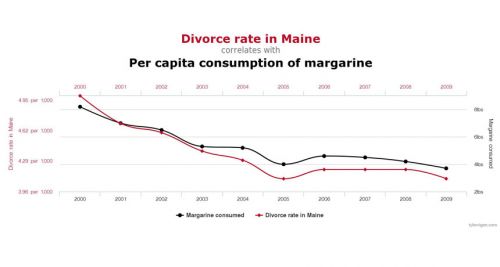
Probability was the core underlying principle, or in other words, the statistical answer to the question whether something was truly by chance, or if there was a statistical relation. Under the growing economies, more and more numbers surfaced, and building on the Dutch resolution of double book keeping, questions arose whether there were patterns to be found in the data. Could crop outcome of cotton predict its market value later in the year? And would crop failures be clearly linked to famines, or could this be compensated? Statistical correlations were able to relate to variables, and to find if one is related to the other, or if the two are unrelated. This triggered a hefty move of utilitarianism from philosophy into economics, which is one of the core disciplines up until today. Much can be said about the calculation of utility, but I will surely do this not here. In science, learned academies grew everywhere, and universities thrived, also because of the economic paradigm of a growth-focused and consumption-orientated baseline that emerged, and more and more knowledge emerges to criticize and question this paradigm. This triggered what is often called the age of reflection, when empiricism became basically untamed, and the depth of inquiry led to disciplines that started to entrench themselves into even deeper sub-disciplines. The impact on societies was severe. Mechanization, new approaches in agriculture, the rise of modern medicine, an increasingly refined biology and the developments in chemistry are testimony of the physical world being ever more in the focus of science. The general lines of philosophical thinking - reason, social contract and utilitarianism - became partly uncoupled from philosophy, and developed for better or worse to become distinct disciplines such as psychology, social science, political science, cultural studies and economics. We thus observe a deviance from empirical sciences from the previously all-encompassing philosophy. Hence empiricism was on the rise, and with it a pronounced shift in science and society.
After the Wars - The Rise Of Agency
Out of societal, economic, technological and other developments, there emerged almost consequently a counterpoint. This was already rooted in Kant and his assumption of the priority of reason, and Marx made a vital step towards a critical perspective. He developed philosophy from an inquiry of views of the world towards an agenda to create change, which was mainly focussed on the economical system. All this cascaded into the tremendous changes of the 20th century, which are almost too much to comprehend. It could however be concluded that the disaster of the two World Wars, the recognition of the inequalities of the colonial system, and the focus on the injustices is associated with emancipation, discrimination and racism. Critical theory can be seen as a landmark development, where the structures and conditions of societies and cultures are taken into the focus.
This triggered two general developments. First, there was a general and necessary increase in the questioning of society and science in a sense of critical theory, which needs to play a central role at least until these problems are solved. Second, the critical perspective triggered a recognition of the need to differentiate the creation of knowledge, which ultimately translated into severe methodological developments of taking people deeper into the methodological focus (Interviews, Delphi, Ethnography). The rising number of approaches in statistics led to more and more disciplines (social science, ecology, psychology) and sub-disciplines. A prominent example is psychology, which utilized the ANOVA as the main analysis tool for the psychological experiment. Interviews emerged in the 1960 as one of the main tools of deep social inquiry. Scenario Planning allowed for the systematic creation of different futures. Grounded Theory unlocked a more inductive view of the world. Network thinking and system theory emerged to take interaction and complexities of the world into account. And satellites and the recognition of 'spaceship earth' unlocked a new global perspective on our planet. Meta-Analysis allowed for a supra perspective to integrate the diversity of different results, and Kuhn even proclaimed a perspective how science emerges as a whole. Feyerabend rejected the Dogma of science altogether, which was a vital step towards a critical perspective on methods. All the while, disciplines branched into ever smaller disciplines, fields, sub-disciplines etc.
Internet and Computers - The New Science Of Interconnectedness
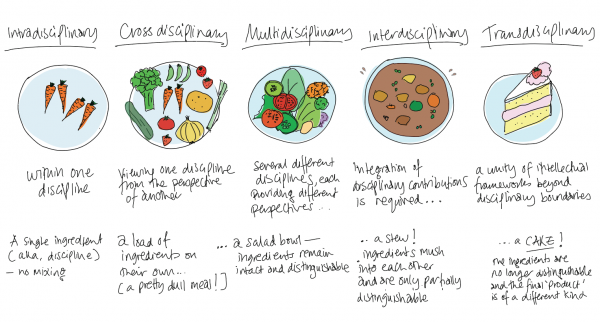
Out of the general recognition that novel paradigms need to be developed or identified because of the flaws of the current system, and equally out of the recognition of the importance of new forms of knowledge, a new mode of science emerged, calling for a critical reflection and an integration of science and society. With an increasing recognition of the complexity of the problems humankind faces, it became clear that one single discipline would not be able to approximate the necessary solutions. Instead, the disciplines would need to collaborate, which is no small thing to ask. Opposing lines of thinking, different foci, incompatible language, and after all a competition for limited resources and attention, and schools of thinking that claim superiority in their importance - all these are no building blocks of scientific collaboration. Yet all these problems are negligible compared to the challenge to create a joined knowledge production between science and society. Science kept a partly arrogant distance from society, or at least much of science avoided a direct interaction. Interviews, observations, maybe interaction were already familiar approaches. Joined problem framing and mutual learning from science and society posed a radical new mode of research, and we are only starting to shift the underlying paradigms that formed science since centuries. Trandisciplinary research thus emerged as a new mode of research, and an inclusive, reflexive and solution-oriented path that transcends trenches in science, and also between science and society.
This radical development coincides with yet another revolution that shattered science, namely the digital age. Computers allowed for faster calculation and novel methodological approaches. The internet fueled new sources and forms of knowledge, and the associated new forms of communication triggered an exchange between researchers at an unprecedented pace. All means of electronic communication, online journals and the fact that many researchers today have their own computer led to an exponential increase in scientific collaboration. While this sometimes also breads opportunism and a shift to quantity instead of quality in research, it is undeniable that today much of scientific information is not further away from us than the click of a mouse. Technology cannot be an end in itself, but as a means to an end it enables today an exponential pace of research, which manifested itself most illustratively in the Corona crisis. The global community of researchers united in their utmost strength, and the speed and diversity of knowledge creation is unprecentented in the history of our civilisation. Never before was more interaction between the latest scientific inquiry or results and the society.
Additional Information
- More information on Kuhn's theory of scientific paradigm shifts.
The author of this entry is Henrik von Wehrden.
